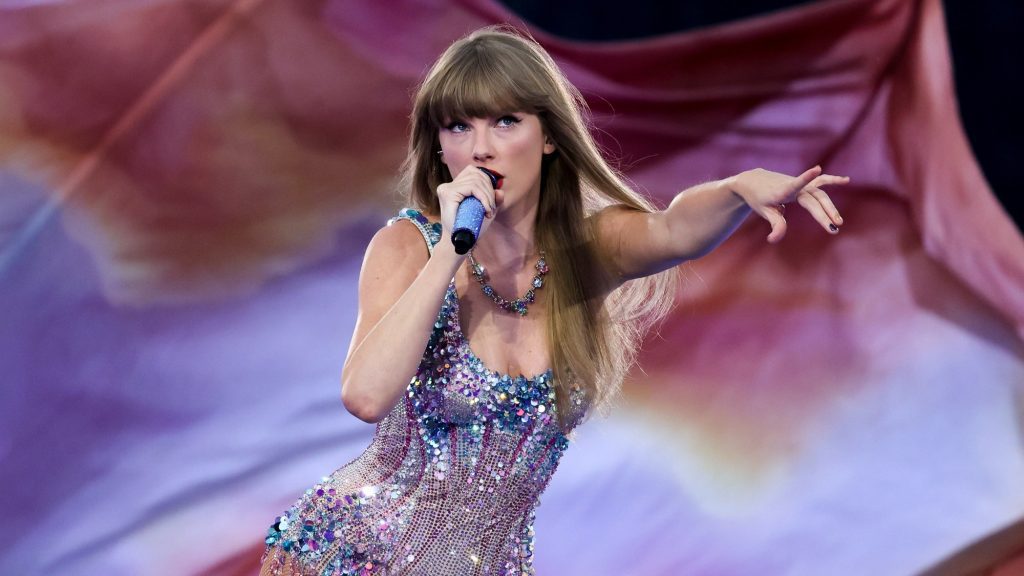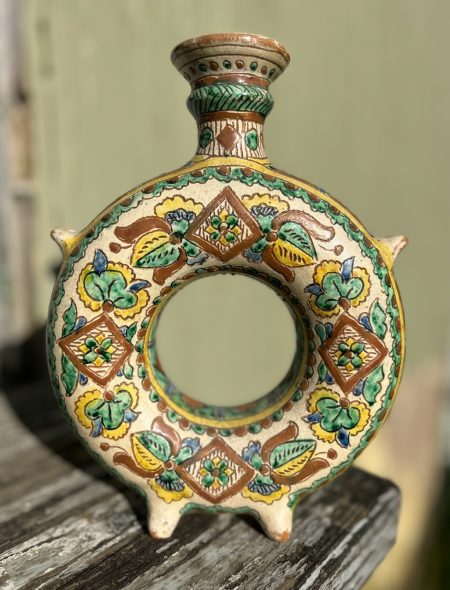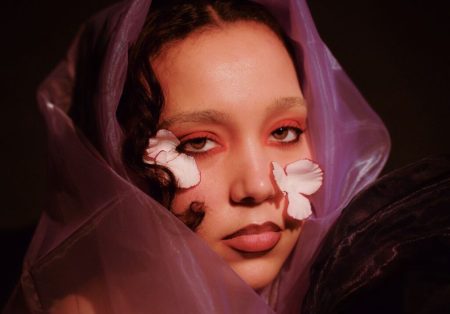The Tortured Poets Department does not really exist, but if it did, there would be plenty of amenities like pillows, circular tracks, skylights, and a liquor license. Each poet's office would have soundproofing and smart lighting, and the department chair, Taylor Swift, would have a large expense account.
B. Metzger Sampson, executive director of the Chicago Poetry Center, initially reacted with skepticism upon hearing about the Tortured Poets Department, associating the name with stereotypical depictions of poetry.
Swift's perception of poets as revolutionary brooders is viewed as outdated by Sampson.
If Taylor Swift were to wear a beret and rob a bank, it would make others feel foolish.
Sampson quipped that she would accept it if Taylor Swift robbed a bank and redistributed the money.
Since February, there has been speculation about the details of Swift's upcoming album “The Tortured Poets Department” and her alignment with poets. It is questioned whether other songwriters would be welcomed into the department, sparking debates about whether lyrics can be considered poetry.
The impact of Swift's popularity has reignited the debate about whether lyrics can be classified as poetry.
The title of Swift's album has stimulated discussions among poets and academics about the connotations of each word, such as the potential exclusivity implied by “The,” the intensity of “Tortured,” and the potential pretentiousness of “Poets.”
There was no outright dismissal of Swift as a poet, but rather a recognition of the complexities and debates surrounding the classification of lyrics as poetry. The consensus was that there is value in acknowledging the similarities and differences between poetry and pop lyrics.
What I did not hear was, she’s no poet.
“I am pretty ecumenical in my relationship to cultural production,” said Susannah Young-ah Gottlieb, director of the Poetry & Poetics Colloquium at Northwestern University, emphasizing the interconnectedness of lyrics and poetry and rejecting a rigid distinction between the two.
Every poet and musician interviewed for this story recognized the value of both poetry and pop lyrics, acknowledging that there is no easy definition and highlighting the similarities and differences between the two forms of expression.
Some people were wondering why we have to go and complicate things, while nodding to Tay.
Adrian Matejka, the editor of Poetry magazine based in Chicago, used to teach a course called “The Poetics of Rap Music” at Indiana University. He believed that all rappers are poets, although not very good ones. He also mentioned that thanks to rap, there are now millions of people listening to poetry. He expressed a desire for Taylor Swift to do for poetry what she did for Travis Kelce. However, he recalled a bar he lived near called Poets Bar, which turned out to stand for (Expletive) On Everything, Tomorrow is Saturday.
I will accept whatever we're given as a poet.
Paul Muldoon, a Pulitzer-winning poet and former New Yorker poetry editor, pointed out that when Bob Dylan won a Nobel Prize eight years ago, people were confused about whether he is a poet or not. Despite this, Dylan won for literature, not poetry. Muldoon emphasized the connection between song lyrics and poetry in the oral tradition. Muldoon also mentioned novelist Jodi Picoult's tweet expressing her happiness for Bob Dylan's win and questioning if she could win a Grammy. Muldoon criticized the tendency to categorize creative people, highlighting a lack of imagination.
Muldoon, who takes writing songs as seriously as writing poems, explained that sometimes the beginning of a writing process doesn't reveal what it will become. He shared an example of writing a song called ‘I Got Hurt in Jersey’ after seeing a billboard advertisement, which could have easily been the start of a poem.
Chicago’s first poet laureate, avery r. young, is as credible as a stage musician as he is as a poet. He emphasized the freedom of expression in lyrics and poems and compared the musicality of poems to song lyrics. He also discussed the association of poetry with academia and song lyrics with pop culture, attributing it to financial reasons. ('Suzanne Vega')If a poet is told to stay in their lane, it can provoke a strong reaction.
Critics and audiences seem to delight in this.
Multidisciplinary artist avery r. young, the first Chicago Poet Laureate, will perform at the Logan Center for the Arts on April 27, 2023. (Eileen T. Meslar/Chicago Tribune)
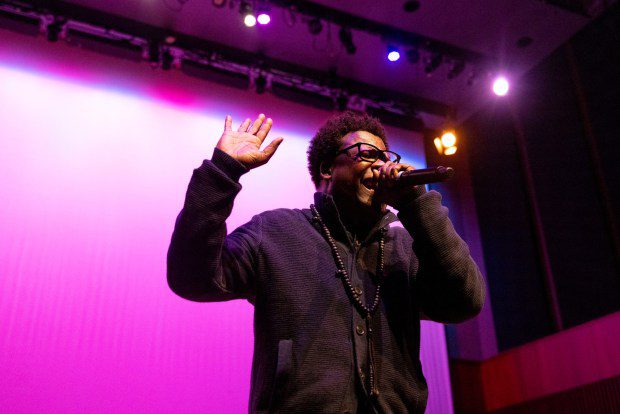
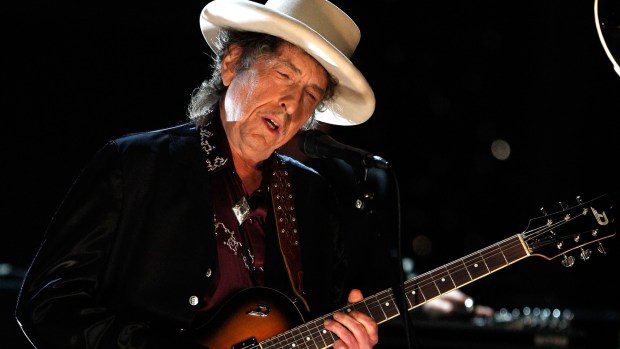
That did not age well.
The conversation, however, has its origins in the old argument about high and low culture, which can be traced back to the Greeks. According to poet Charif Shanahan, lyric poetry in the Western tradition was named as such because it was once performed with a lyre.
Charif Shanahan, who teaches at Northwestern and recently won the prestigious Whiting Award for emerging writers, argues that the visual appearance and structure of a poem on a page distinguish poetry from lyrics. During the Middle Ages, troubadours pioneered a blend of lyric poetry, storytelling, and music, which muddied the distinctions further.By the 1960s, Bob Dylan and his peers made it difficult for the average person without a poetry background to differentiate between a lyric sheet and a poem. Musicians such as Gil Scott-Heron and the Last Poets intentionally blurred the distinction, which later influenced hip hop.
Organizations like the Chicago Poetry Center now train poets to use contemporary pop music as a tool for explaining poetry's rhythms, pauses, and subjects. Poet Phillip B. Williams mentioned that it can be easier to understand a word from a song, citing an example from Mariah Carey.
He then sang: "Oh, I can't be evasive with you, because it's obvious that I'm feeling you…"
Williams emphasized the difference in execution between singing and reciting poetry, noting the varied approaches taken by musicians like Esperanza Spalding.
Kara Jackson's performance took place at Thalia Hall in Chicago on Dec. 1, 2023. (Chris Sweda/Chicago Tribune)
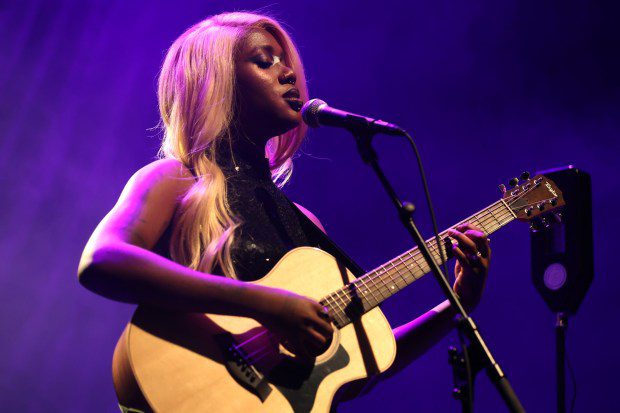
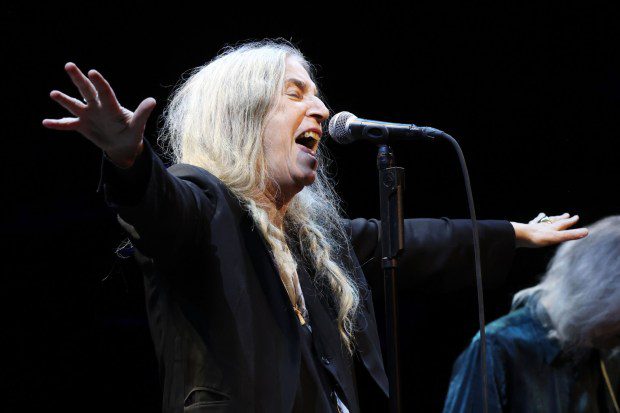
"Lady Lazarus" begins with the line: 'I have done it again.' It's not a big leap from there to Taylor Swift's lyrics:”:
"Look what you made me do."
Adam Bradley, a professor at the University of California, Los Angeles, specializing in the poetics of lyrics, argues that even the ad-libbed elements in contemporary rap reflect the balance between musicality and coherence. He also sees Taylor Swift as a sophisticated writer who humorously identifies herself as a poet.
Bradley believes that Swift's use of cliches adds new depth by making them resonate, as seen in her song 'Holy Ground.'
Consider ‘Invisible String’ from ‘Folklore’:
The steel of my axe to grind was cold
For the boys who hurt me
Now I give their babies gifts.
It’s excellent, clever writing. And it’s not even part of the many songs in the curriculum for Taylor Swift and Her World, a new course at Harvard University, being taught for the first time this spring by poet Stephanie Burt. She talks about Swift as a songwriter, she said. Although the context is important. Swift is taught alongside Wordsworth and Coleridge in the class; “Red (Taylor’s Version)” is taught on the same day as Shakespeare’s Sonnet 59:
If there is nothing new, but what has already been before, how are our brains deceived
Which, striving for invention, carry wrongly
The second burden of a former child.
Or as Taylor sang:
Lord, what will happen to me
Once I’ve lost my novelty?
Burt is not comparing Shakespeare and Swift but demonstrating, spanning across centuries, how both are recognizing the end of their youth. Indeed, Muldoon said, while some singers write lyrics that can “stand up” on a page without any music attached — Dylan, Smith, Joni Mitchell — that’s often accidental to their intentions. Despite how similar lyrics and poems seem, the transition is rarely neat. While it’s mistakenly believed Allen Ginsberg’s “Howl” was written to be read live — it now sounds like a Patti Smith outtake — Brooklyn musician David Nagler found Carl Sandburg’s less lively “Chicago Poems” open to accompaniment. He recorded an album of Sandburg in 2016, drawing inspiration from Randy Newman and Harry Smith’s “Anthology of Folk Music”; he had assistance from Chicago musicians, including Sally Timms, Kelly Hogan, Jeff Tweedy, Jon Langford.
But even that took 18 years to perfect.
Charles Kim has taught songwriting at the Old Town School of Folk Music for almost 25 years. “Some people don’t want to pay attention to syllabic stress or melody or consider the way music and language have their own priorities,” he told me. “So one thing I tell students who start out writing songs is a song is not a composition stapled to a poem.” He recommends listening to “Here Comes the Sun,” and noticing how uninteresting the lyrics are (“less than a greeting card”) yet paired to music, it’s poetry, with an emotional release.
Thankfully, there’s a middle ground, a place where poetry and music exist together.
Named Chicago.
Specifically, a scene that’s been around for years, consisting mainly of Black musicians and poets, performing on the same stages, drawing inspiration from the musicality of poets before them, such as Gwendolyn Brooks. The national slam poetry movement — a performative form — was born here. Between two local arts organizations alone, Louder Than a Bomb (now, the Rooted & Radical Youth Poetry Festival) and Young Chicago Authors, we’ve seen a lineup of songwriter-musician-poet-writers unusually fluid in navigating different forms — Jamila Woods, Kara Jackson, Eve L. Ewing, Nate Marshall, Noname. Jackson, a former U.S. National Youth Poet Laureate, wrote a lyric that goes:
He said, ‘You’re just no fun, you’re just no fun’
And if seeing you naked wasn’t such a bargain
it would be a homerun, it would be a homerun.
That’s a song. But it could be a poem. It could stand up on the page. When avery r. young — long a part of this scene — writes a song lyric, he considers accessibility and melody, and with a poem he thinks of syntax and words on the page. Lately, he also considers Beyonce’s “Cowboy Carter” album, blurring boundaries, “questioning who gets included in a genre.” And he thinks of Taylor Swift, “being tongue in cheek about being a tortured poet, but then, also maybe just being honest about where she goes when she writes? She’s saying it’s cool just to write — to emote! I mean, I tell everybody who asks that I am an interdisciplinary artist, and really, in the end, it’s all poetry.
It goes back to discussions about Dylan — actually much earlier. It has special roots in Chicago’s own blend of slam poetry and songwriting. What’s a song, and what’s a poem, anyway?





